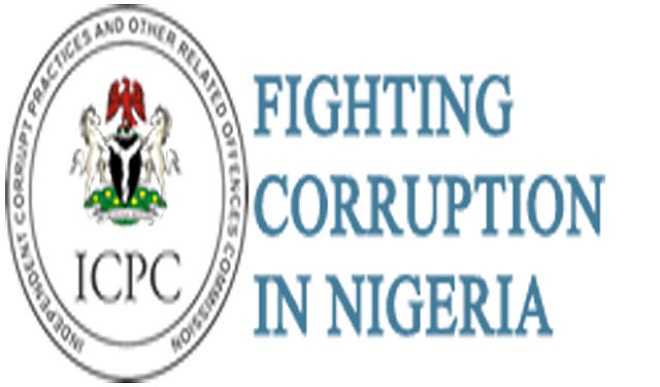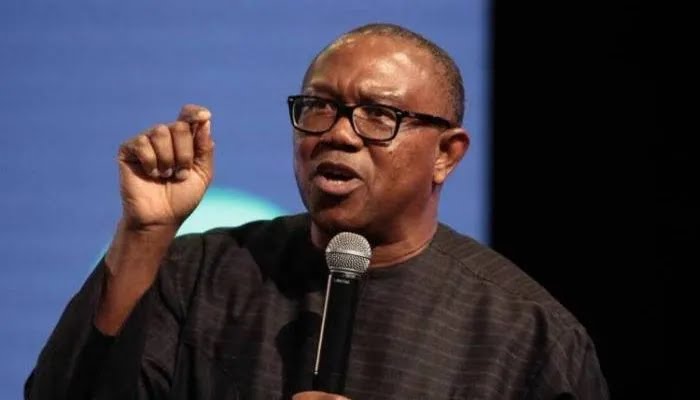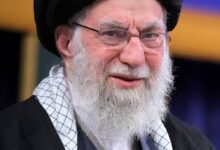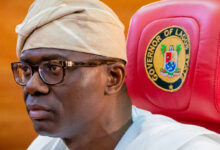Corruption is deep but it can be defeated

Section 15(5) of our Constitution is clear: “the State shall abolish all corrupt practices and abuse of power.” The prosecutorial agencies and the judiciary of course, have the responsibility to investigate, prosecute and punish those involved in corrupt practices so that the Nigerian State remains faithful to the injunctions provided by our Grand Norm. We know however that the State has lacked the capacity to abolish corrupt practices. In other words, the State has been unable to play its role as the guarantor of the rule of law. As we all know, the rule of law requires the equality of all citizens but on issues of corruption, Nigerians are very unequal. In Nigerian prisons today, there are thousands of people who are in jail because they have stolen a chicken or a goat. They are in jail because they have committed a crime against the State. Although their theft was petty and most likely due to extreme poverty, they must suffer the punishment because they have committed a crime against the State. The paradox however is that those who steal in billions are usually protected by the same state. Nigeria has developed a system in which punishment for corrupt acts applies only to those citizens who are unable to pay for the right calibre of lawyers or who are unable to pay judges for immunity. This is a crisis that indicates the absence of justice in our society.
In a convocation lecture he delivered at the University of Maiduguri on the 31st of January 1985, Justice Akinola Aguda drew the attention of his audience to the earliest discovered written Secular Code, King Hammurabi (1728-1686 BC). The said Code was established: “To make justice appear in the land, to destroy the evil and the wicked, in order that the strong might not oppress the weak”. In Nigeria, our “justice system” appears to be designed to make the strong above the law. The most serious problem begins with the strongest.
The story by Dapo Oloronyomi and Mojeed Musiliku on the Halliburton Bribe Takers (Next, 29th March, 2009) demonstrated that our leaders in the past have been common criminals who violate our laws and Constitution. The known and fingered personalities include three former presidents; Olusegun Obasanjo, Sani Abacha and Abubakar Abdulsalam; as well as a who’s who of Nigeria’s political and business elite. Our three former successive presidents received millions of dollars in bribes from American and European contractors retained to build Africa’s first liquefied natural gas plant in Bonny, Rivers State. Also enmeshed in the vast and formalized bribery scheme is a long line of ministers, bureaucrats, top politicians, state and local officials and former oil minister Dan Etete, according to American investigators. They all received millions of dollars in bribes from the oil services company in exchange for billions of dollars in contracts to build our liquefied natural gas plant. Halliburton paid $579 million in fines and many of its agents went to jail for bribing our former presidents. Our law enforcement authorities, notably the Attorney General at that time, Michael Aandoaka, promised a thorough investigation but nothing happened. The National Assembly, the EFCC and the Office of the Attorney General simply refused to act when the story broke. Worse still, former Attorney General, Michael Aondoakaa sought to investigate Halliburton for tarnishing the image of the country by bribing its officials. Those who performed the corrupt acts by receiving bribes were of no interest to him; he was more worried about protecting the image of the bribe takers.
I have pointed out many times in this column that the Buhari Administration has many faults but it has an important strength, the will to fight corruption, even if its practice lacks elegance. On November 18, 2015 Nigeria’s president ordered the arrest of a former national security adviser who was accused of anchoring the mega looting of the millions of dollars meant to buy weapons for the fight against Boko Haram militants. Police surrounded the house of Sambo Dasuki in Abuja and eventually arrested him. He was alleged to have organised the systematic looting of over $2 billion. Specifically, between 2012 and 2015, Dasuki awarded fake contracts worth more than $2 billion for fighter jets, helicopters, bombs and ammunition that were never supplied to the armed forces. In 2014, Nigeria spent $5.8bn on security, a quarter of the country’s total budget. It is fairly clear now that much of that money was stolen. There is a clear relationship that has developed between the increase of budgets on security and the deteriorating security situation in the country. As senior officers of the armed forces became multi billionaires, the state of security in the country deteriorated.
One of the key principles of democracy is that those who govern are regularly held accountable to the citizens on whose behalf they exercise power. Accountability is the processes and procedures through which citizens and those who exercise responsibility on their behalf engage the process of assessing and enforcing governance. The processes and procedures include elections, recall of candidates who perform badly, referendum and fiscal accounting. In constitutional democracies, the accountability of those who hold office to the citizenry is based on the mandate given by the electors to those they elect to parliament or to the executive branch of government. Accountability implies that public officials are answerable for their actions and that there is redress when duties and commitments are not met. Accountability requires that standards for expected behaviour be set for those exercising authority so that they can be assessed and judged. When they engage in criminal behaviour, the administration of justice must prosecute them.
One of the successes of the Buhari Administration is bringing the issue of senior lawyers and judges in relation to corruption on the national agenda. I agreed with the Acting Chairman of the EFCC, Ibrahim Magu, when earlier this year he told the Nigerian Bar Association that: “Society is not served when prominent members of the bar not only take clearly tainted briefs, but even facilitate the commission of crimes by knowingly supplying the technical know-how and later, helping in the dispersal of the proceeds of crime.” He concluded on the colourful note that there are silks who: “are vandals of the temple of justice.” The arrest and trial of judges for acts of corruption is a brave move that could take us along the path leading to the same justice for all citizens.
Nigerians look forward to a future in which public resources would be used for the public good. It was precisely for this reason that Nigerians rallied round to support President Buhari and get him to power largely on account of his anti-corruption credentials. In 1984-1985, the Buhari regime locked up the entire political class in jail for their corrupt past. They suffered for some time but eventually, his regime was overthrown and the jailbirds came back to power and expanded their corrupt acts with renewed vigour. The problem with Buhari’s first regime was that the approach to fighting corruption was ad hoc, using military tribunals rather than the normal instruments of the administration of justice. This time round, the institutions of justice are being used. There is widespread concern however that sometimes procedures are ignored and even court orders are sometimes disregarded. If such lapses are addressed, the war against corruption could be institutionalised.
One thing that has been scientifically proved about corruption is that when the system is able to punish those involved in corrupt practices the quantum decreases steadily. When there is immunity for engaging in corrupt practices however the quantum and scale of corrupt acts grows astronomically. Following the successes of Nuhu Ribadu in the EFCC and the way he was bundled out of the institution for doing his work well, confidence returned fully to the practitioners of grand corruption in Nigeria. Nigeria became the only country in the civilised world where corrupt persons could get court injunctions stopping the prosecutorial agencies and the courts from investigating and prosecuting their corrupt acts. The tide is changing. The wheels of justice are turning and our only prayer is that all those guilty of corruption must be prosecuted and go to jail if found to be guilty. Let us resist the attempt by corruption to fight back.
*This piece by Aliyu Kwaifa first appeared in Daily Trust on December 23, 2016.








